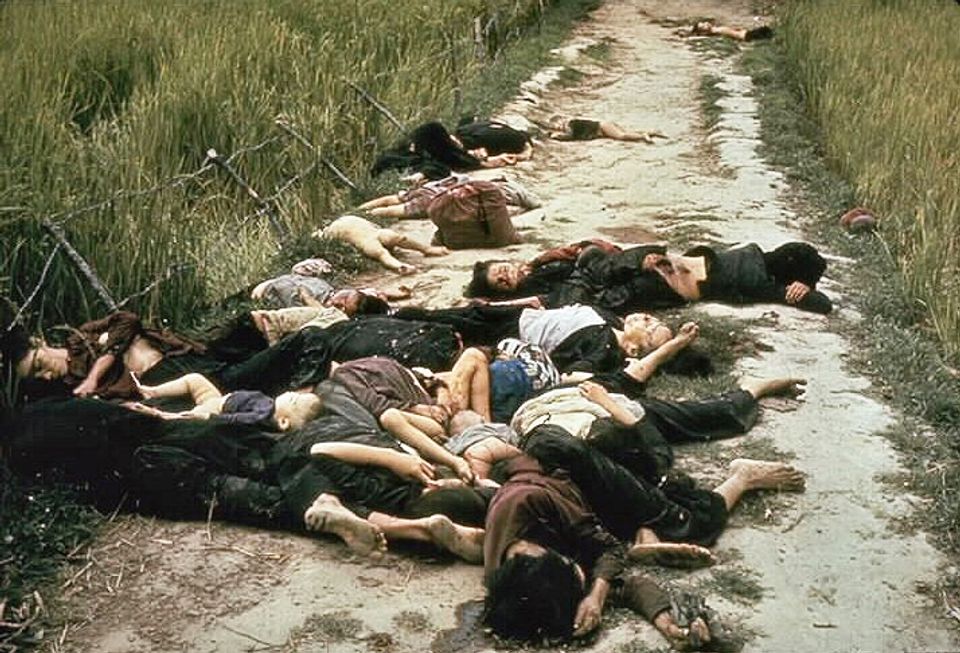by PATRICK MARTIN
 Victims of the My Lai massacre, March 1968
Victims of the My Lai massacre, March 1968
The Vietnam War, a film by Ken Burns and Lynn Novick, written by Geoffrey Ward, narrated by Peter Coyote
A 10-part, 18-hour film series directed by veteran documentary filmmakers Ken Burns and Lynn Novick, The Vietnam War contains footage, photographs, interviews and tape recordings whose cumulative impact is immensely powerful. It evokes in the viewer a sense of horror. The film provides evidence that the war resulted in more than 3 million dead, the vast majority of them Vietnamese civilians slaughtered by American bombs, artillery shells, napalm and other weaponry.
The documentary is a major project, which was undertaken with vast corporate sponsorship. The involvement of Ken Burns, and its broadcast on Public Television, endows the documentary with a semi-official character. It reflects, in objective terms, where a significant section of official American liberal “public opinion” stands in relation to the Vietnam War more than 40 years after its end. Based on this documentary, one is compelled to conclude that this layer of opinion makers has never come to grips with the reality of Vietnam, that is still lying to the world and to itself, and attempting to relativize and justify policies and actions that rank among the most criminal in the 20th century.
By rights, the war should have been followed by the American equivalent of the Nuremberg Tribunal, at which all those responsible for planning and supervising the US intervention would have been publicly indicted for their crimes, prosecuted and sent to prison. That never happened, and American public life—and American culture more broadly—have suffered ever since from this colossal moral failure.
What followed the war, instead of such a fundamental examination of how such crimes came to be committed, was a persistent attempt to salvage something from the catastrophe, to disguise its criminal character, to legitimize it, and to gradually erode what came to be known as the “Vietnam syndrome”—the pervasive and entirely justified distrust and resistance of the American people toward new foreign military interventions.
One of the major techniques employed by the US ruling elite to overcome the legacy of Vietnam was to hide behind the soldiers, the two and a half million Americans who fought in the war, many of them unwilling draftees. Appeals for sympathy for the veterans were employed, in a sort of moral blackmail, to cover up the central issue of the criminality of the enterprise in which those soldiers were ordered to take part. Anyone who rejects the claim that the Vietnam War was merely a “mistake” and demands a more penetrating and critical approach is smeared as denying the suffering and sacrifice of the soldiers.
World Socialist Web Site for more